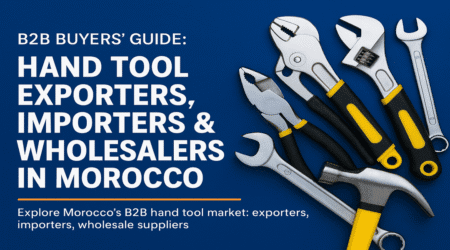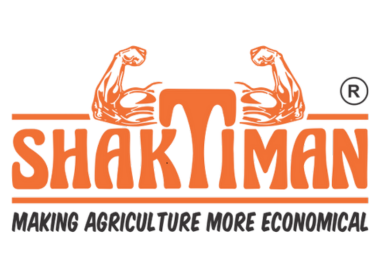
Introduction
The global hand tools industry has been witnessing steady growth, fueled by construction, automotive, manufacturing, and home improvement sectors. Morocco, a country strategically located between Europe, Africa, and the Middle East, is quickly emerging as a promising market for hand tools. For international businesses looking to export hand tools or build B2B partnerships with importers and wholesale distributors in Morocco, understanding the dynamics of this market is crucial.
This B2B buyers’ guide explores Morocco’s hand tool industry, covering exporters, importers, and wholesale distributors, while providing practical insights into opportunities, challenges, and future trends. Whether you are a manufacturer, supplier, or buyer, this guide will help you make informed business decisions in Morocco’s fast-evolving tool market.
Morocco’s Hand Tool Market Overview
The Moroccan economy has been expanding steadily, supported by infrastructure projects, real estate development, and industrial growth. These sectors drive significant demand for high-quality hand tools such as spanners, pliers, hammers, screwdrivers, wrenches, sockets, and cutting tools.
Key drivers of Morocco’s hand tool demand include:
- Construction & Infrastructure → Growing urbanization and government investments in housing, roads, and public works require a consistent supply of durable tools.
- Automotive & Mechanical Repair → Morocco is home to a growing auto industry, with factories and workshops demanding precision tools.
- Agriculture & Rural Development → Farmers and agricultural equipment workshops rely on simple yet strong tools for daily operations.
- DIY & Home Improvement → Rising middle-class interest in home renovations and DIY projects is creating retail demand for hand tools.
For global B2B buyers, Morocco presents an excellent opportunity to establish distribution networks and long-term supply chains.
Hand Tool Exporters in Morocco
While Morocco is largely an import-driven market for hand tools, a number of companies also act as exporters and re-distributors to nearby African countries. Exporters typically supply regional wholesalers in West Africa, Mauritania, Senegal, and Tunisia.
Key Features of Moroccan Exporters:
- Focus on low to mid-range tools for African markets.
- Ability to re-export imported goods (from Europe, China, India) to neighboring countries.
- Strong presence in port cities like Casablanca and Tangier, which are trade gateways.
International businesses looking to partner with Moroccan exporters can leverage their strong distribution channels and logistical advantages to reach multiple African markets through a single partner.
Hand Tool Importers in Morocco
Morocco imports a wide range of hand tools from global manufacturers, including those based in India, China, Germany, and Spain. Importers act as the primary link between foreign suppliers and local markets.
Commonly Imported Products:
- Spanners, wrenches, and pliers.
- Hammers, screwdrivers, chisels.
- Cutting tools, saws, and files.
- Workshop and garage tools.
- DIY hand tool kits.
Qualities Importers Look For in Suppliers:
- Consistent quality → Tools must meet international standards (ISO, DIN, ANSI).
- Competitive pricing → Moroccan buyers are price-sensitive but value durability.
- Wide product range → Importers prefer dealing with suppliers who can provide complete tool sets.
- Flexible MOQs → Initial smaller orders build trust before bulk contracts.
- Timely delivery → Reliability in shipping is crucial due to project-based demand.
For exporters from India and other countries, Morocco represents a growing buyer base with repeat demand, especially for affordable, heavy-duty hand tools.
Wholesale Hand Tool Distributors in Morocco
Wholesale distributors form the backbone of Morocco’s tool supply chain. They purchase tools in bulk from importers or manufacturers and distribute them across the country to retailers, workshops, and contractors.
Why Distributors are Vital for B2B Success:
- They provide market reach into both major cities (Casablanca, Rabat, Marrakech) and smaller towns.
- They help new foreign brands gain visibility in the local market.
- They establish long-term relationships with contractors, mechanics, and retailers.
For international suppliers, building partnerships with reliable wholesale distributors ensures brand penetration and steady order flow in Morocco.
B2B Opportunities in Morocco’s Hand Tool Market
- Partnership with Local Distributors
- Collaborating with established wholesalers reduces entry barriers.
- They already have established networks with hardware stores, automotive workshops, and construction companies.
- OEM & Private Label Supply
- Importers often look for custom branding opportunities.
- Offering OEM hand tools allows you to penetrate the market under local trusted names.
- Export Gateway to Africa
- Morocco is part of the African Continental Free Trade Area (AfCFTA).
- Products imported into Morocco can be re-exported to nearby markets with fewer trade restrictions.
- E-Commerce Growth
- Platforms like Jumia and local B2B marketplaces are creating digital avenues for tool sales.
- Distributors are increasingly exploring online channels for wider reach.
Challenges for Hand Tool Exporters & Importers in Morocco
While Morocco is attractive, businesses must be prepared for some challenges:
- Price Competition → Chinese products dominate with low prices.
- Regulatory Requirements → Import duties, certifications, and customs clearance can be complex.
- Language Barriers → French and Arabic are the main business languages. Suppliers who communicate in these languages gain an advantage.
- Logistics → Shipping delays or port congestion can impact delivery schedules.
- Brand Loyalty → European and established local brands often have strong presence in the premium segment.
Future Outlook: Morocco Hand Tools Market 2025 & Beyond
Looking ahead, Morocco’s hand tool industry is expected to continue growing due to:
- Infrastructure Expansion → More government investment in roads, housing, and industry.
- Automotive Sector Growth → Morocco is becoming a hub for auto parts and assembly plants.
- Regional Trade Expansion → Morocco’s free trade agreements allow it to become a distribution hub for Africa and Europe.
- Rising DIY & Retail Demand → Increasing consumer spending on home improvement tools.
- Technology Integration → Demand for ergonomic, durable, and multi-functional tools is increasing.
For exporters, Morocco offers not only a local buyer market but also a regional re-export gateway.
FAQs
Q1. Who are the main importers of hand tools in Morocco?
Large trading companies in Casablanca and Tangier are the key importers, sourcing tools from India, China, and Europe.
Q2. What types of hand tools are in highest demand?
Spanners, wrenches, pliers, hammers, screwdrivers, and socket sets are consistently in demand across industries.
Q3. Is Morocco a good market for OEM/private label supply?
Yes, many importers and distributors prefer private labeling to build local brand trust.
Q4. What are the main challenges for exporters entering Morocco?
Price sensitivity, competition from Chinese imports, and regulatory paperwork are common hurdles.
Q5. How can exporters find reliable distributors in Morocco?
Through trade fairs, B2B directories, LinkedIn outreach, and direct contact with hardware associations.
Conclusion
Morocco is steadily positioning itself as a strategic hub for hand tools trade in North Africa. For exporters, importers, and wholesale distributors, the opportunities are significant—ranging from construction and automotive supply to OEM partnerships and regional re-exports.
Building strong B2B relationships with local importers and wholesale distributors in Morocco is the key to success. With competitive pricing, consistent quality, and reliable delivery, international suppliers can establish a long-term presence in this promising market.
As Morocco continues to grow in 2025 and beyond, the country’s hand tool sector will remain a hotspot for global B2B collaboration.























